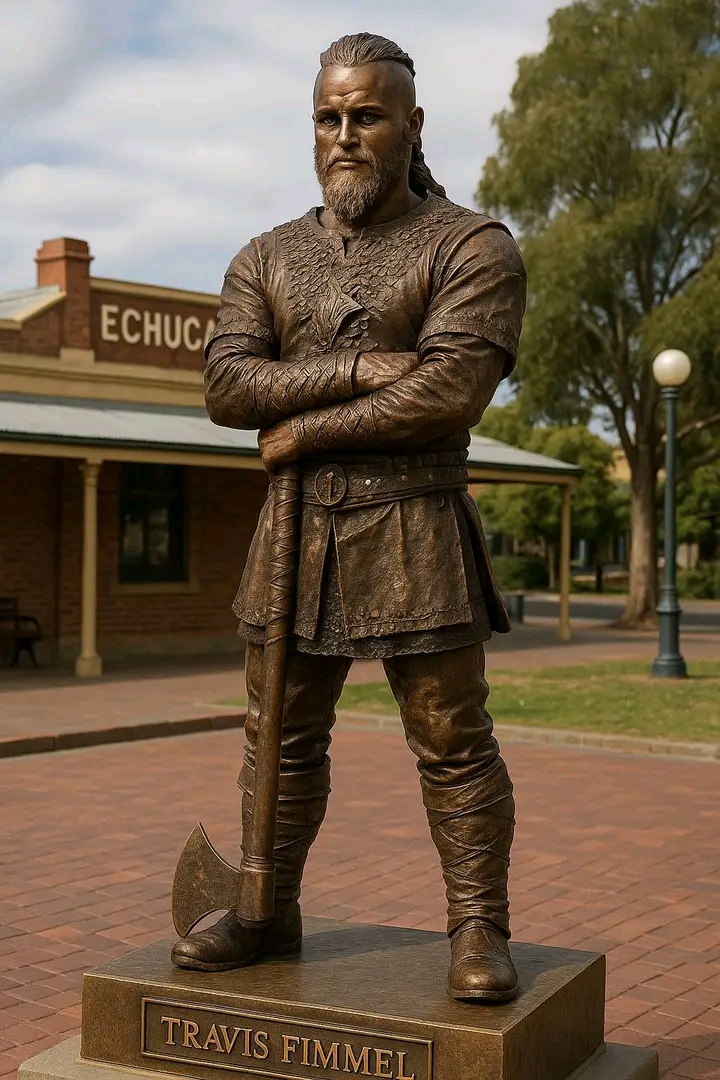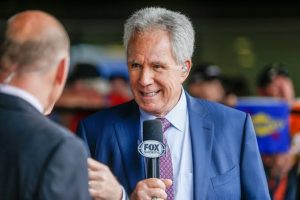
Good news; In a heartwarming tribute to one of Australia’s most beloved actors, Travis Fimmel has been immortalized with a bronze statue in his….
The heartwarming news is that Travis Fimmel has been immortalized with a bronze statue in his hometown of Echuca, Victoria, Australia. This tribute recognizes Fimmel’s significant contributions to the film and television industry, particularly his iconic role as Ragnar Lothbrok in the History Channel series Vikings. The statue is a permanent fixture in Echuca, celebrating his success and connection to his roots.
not to do this interview. Not because he’s rude or uncooperative – as I’ll learn from those close to him, when it comes to causes he cares about, he’s nothing but generous with his time. He would prefer not to do this interview because he doesn’t like talking about himself, or, he doesn’t like talking about himself as ‘Travis Fimmel, the famous Australian actor’. No doubt, he’d much prefer to be known by a small community of country folk as a cattle farmer from the tiny town of Lockington in northern Victoria who runs a beer brand with 25 of his mates.
Unfortunately for Fimmel, we have to talk about acting. It’s because he’s a renowned Australian actor that he’s on the cover of this magazine. He’s in Europe when I reach him, for a friend’s wedding and a “small work thing”. Our phone connection is patchy, and I strain to hear what he says, the potency of his ocker accent not helping. In the background, I can hear the hustle and bustle of a day in the city unfolding – car horns, people talking, the ticking of a pedestrian crossing at traffic lights. He tells me that while filming the upcoming Dune: Prophecy, in which he plays a charismatic soldier with a mysterious past, he stayed in the heart of Budapest for seven months.
It was a very nice place, but I was stuck in a little apartment in the city, so it wasn’t my cup of tea.” He feels the same way about the busy streetscape I find him in today. “Yeah, I’d rather just be home the whole time,” he says of the property he currently leases, just outside of Echuca, a 25-minute drive from the farm he grew up on. “People have the same mentality there; we all grew up the same. But . . . unfortunately, there’s a lot of work overseas. You know, there’s only 26 million people in Australia. You have to work overseas so you have a name. If you have a name, foreigners are more likely to buy Australian productions because of your name. But yeah, I’d rather be at home.”





